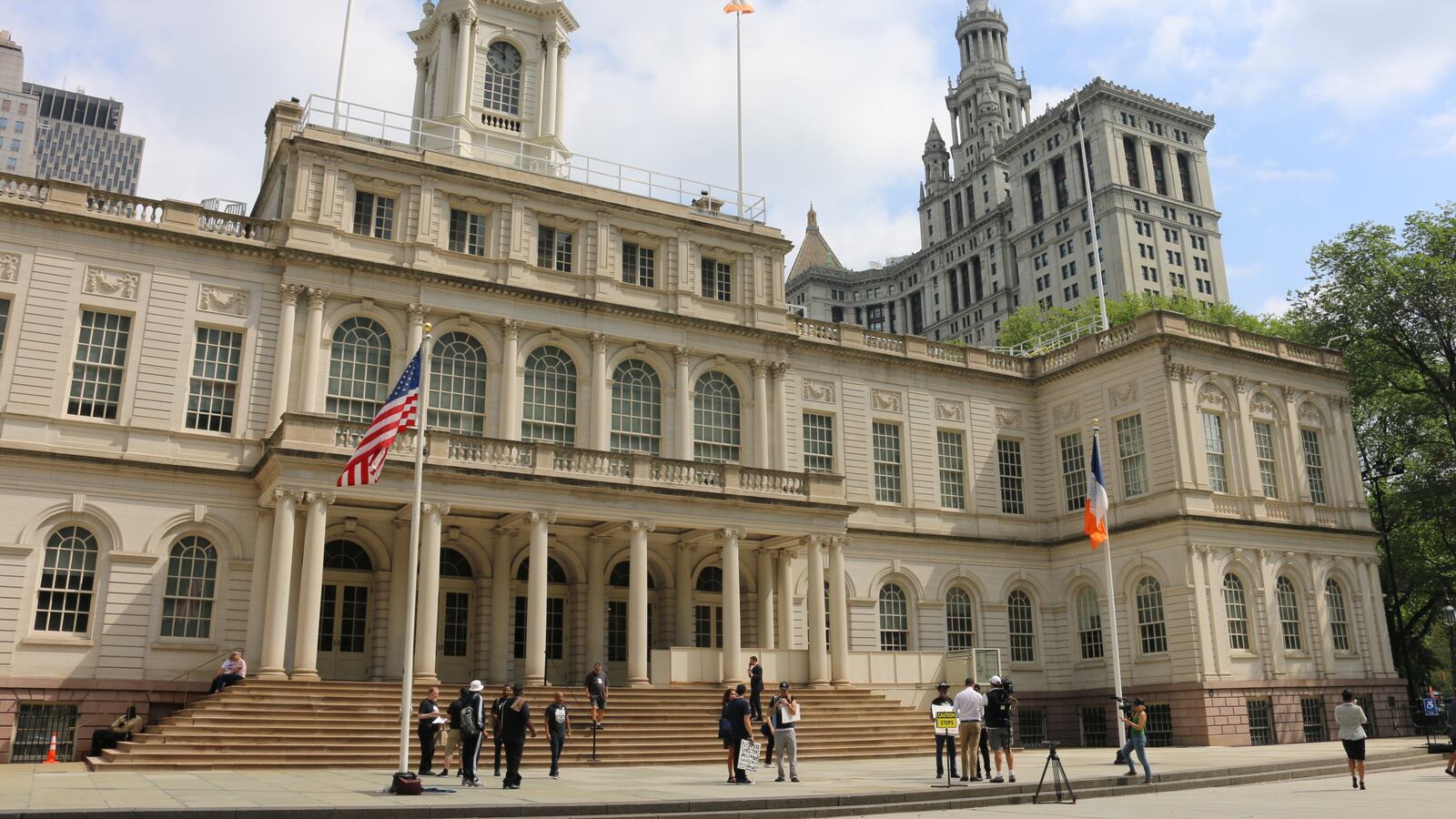Hurdles to hiring staff they need. Safety concerns without the resources to address them. And paperwork — lots of it.
New York City principals say their autonomy has steadily eroded while they juggle ever more administrative demands on their time. Those frustrations are largely what’s holding up contract negotiations, according to their union, the Council of School Supervisors and Administrators. Their previous agreement with the city expired about six months ago.
“The job is much harder,” said Dominick D’Angelo, a 12-veteran principal of I.S. 228 in Gravesend, Brooklyn. “We’re not being respected by not having a fair contract.”
Principals are expected to rally after school on Wednesday, Oct. 30, in front of City Hall.
While pay issues are usually front and center of negotiations, the union says that’s not the primary issue standing in the way of an agreement: Raises have largely been set, based on deals with other unions that serve as a template. Instead, union president Mark Cannizzaro said his union is lobbying for an agreement that empowers school leaders and eases their “completely unmanageable” workloads. The union represents about 6,000 principals, assistant principals, and other administrators.
“It is impossible for our folks to do everything that they’re being asked to do,” Cannizzaro said. “They do not have the resources they need to provide an appropriate and safe education for the children they’re in charge of.”
Principals have had to adjust to a reigned-in role under Mayor Bill de Blasio, who oversees the education department. His predecessor, Michael Bloomberg, gave principals the power to act like CEOs of their buildings, offering a wide degree of authority in exchange for strict accountability using measures like test scores.
Now, principals are increasingly required to leave their school buildings for training and other meetings, Cannizzaro said, leaving little time to tend to classrooms. Their absence presents additional challenges in schools where there aren’t assistant principals, and inadequate staffing levels can pose safety issues, principals have told the union. But Cannizzaro said school leaders who try to hire additional assistant principals are sometimes micro-managed by superintendents, their supervisors, who question their decisions.
Principals also reported that their time is often diverted to mandatory investigations ranging from teacher misconduct to allegations of bullying. The process can include tracking down and interviewing witnesses, pulling records, and drafting an official conclusion without much guidance or support about how to properly handle it all, Cannizzaro said.
He did not discuss the specific fixes the union is seeking. A city spokeswoman said principals do “life-changing work” and that officials hope to come to an agreement soon.
Schools Chancellor Richard Carranza thanked the union for its “unwavering commitment and advocacy on behalf of our school leaders” in a weekly email he sent principals.
“While we may not always see eye-to-eye, one thing is never in question: our shared commitment to you, and to every one of the children we serve,” he wrote on Oct. 29.
The principals union fight stands in stark contrast with recent city negotiations with the United Federation of Teachers, which has far more members. The teachers union wrapped up its bargaining months ahead of schedule, and won benefits that, in some cases, gave teachers a greater role in school decision-making. That prompted a state complaint from the principals union, which argued the agreement changed the roles and duties of school leaders without their say.
School leaders are also pushing for paid parental leave, Cannizzaro said. Currently, union members who want to take time off after having a child must use accumulated sick days, and even then, only birth mothers benefit. The city and UFT last June agreed to six weeks of full pay for birth, adoptive, and surrogate parents.
D’Angelo said the benefit is needed urgently: one of his assistant principals had a child this month, and another is due in February.
“We’re creating a lot of stress: financial stress for parents, for mothers who are supposed to enjoy the beginning of the life for their child,” he said.

